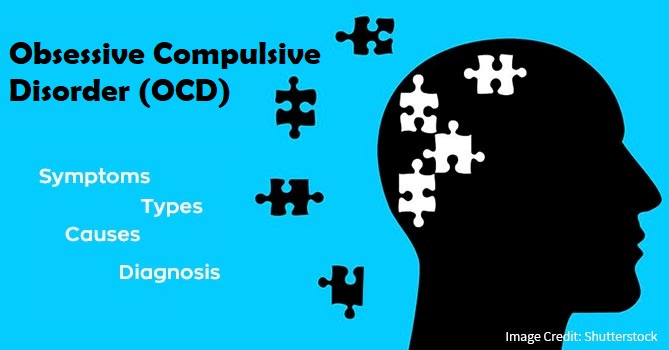Obsessive-Compulsive Disorder (OCD) is a mental health condition marked by persistent, intrusive thoughts (obsessions) and repetitive behaviors (compulsions). These symptoms can severely impact an individual’s quality of life, leading to significant distress and impairment in social, occupational, and other areas of functioning. Understanding the treatment landscape for OCD is crucial as it provides insights into how this challenging disorder is managed and the evolving market dynamics.
Market Overview
Current Market Size
As of 2023, the global market for obsessive-compulsive disorder treatments is valued at USD 508.62 million. This valuation underscores the significant demand for effective treatments driven by the rising prevalence of OCD. High-income countries, where awareness and diagnosis rates are higher, contribute substantially to this market size.
Market Growth Projection
Forecasts indicate that the market is set to grow at a compound annual growth rate (CAGR) of 9.1% from 2024 to 2032. By the end of this period, the market is expected to reach USD 1,113.83 million. This growth is propelled by continuous advancements in treatment methodologies and an increasing number of diagnosed cases.
Market Segmentation
By Treatment Type
- Medications
- SSRIs (Selective Serotonin Reuptake Inhibitors): First-line pharmacological treatment for OCD, including drugs like fluoxetine, sertraline, and fluvoxamine.
- Antipsychotics: Often used as augmentation therapy for patients who do not respond adequately to SSRIs, such as risperidone and aripiprazole.
- Therapy
- Cognitive Behavioral Therapy (CBT): A highly effective treatment focusing on altering negative thought patterns and behaviors. The Exposure and Response Prevention (ERP) technique is particularly beneficial for OCD patients.
- Other Psychotherapies: Including Acceptance and Commitment Therapy (ACT) and mindfulness-based therapies.
- Other Interventions
- Deep Brain Stimulation (DBS): An emerging surgical treatment for severe, treatment-resistant OCD.
- Transcranial Magnetic Stimulation (TMS): A non-invasive procedure that uses magnetic fields to stimulate nerve cells in the brain to improve OCD symptoms.
By Region
- North America
- Dominates the market due to advanced healthcare infrastructure, high awareness levels, and extensive research activities.
- Europe
- Significant market share with strong governmental support for mental health initiatives.
- Asia-Pacific
- Rapidly growing market with increasing healthcare investments and rising awareness about mental health.
- Latin America
- Moderate growth with improving healthcare systems and greater focus on mental health.
- Middle East & Africa
- Emerging market with potential for growth as awareness and healthcare access improve.
Competitive Landscape
The OCD treatment market is characterized by intense competition among several key players. These companies are actively involved in the research, development, and commercialization of OCD treatments, with many seeking FDA approvals for new drugs and therapies.
Key Players
- Sun Pharmaceutical Industries Ltd.
- A leading global specialty generic pharmaceutical company known for its broad range of psychiatric medications.
- H. Lundbeck A/S
- Specializes in brain diseases, including depression and anxiety disorders, with innovative therapies targeting OCD.
- Teva Pharmaceuticals USA, Inc.
- Offers a wide array of generic and specialty medicines, including treatments for mental health disorders.
- Elli Lilly & Company
- A prominent pharmaceutical company with significant contributions to the development of psychiatric medications.
- Apotex Inc.
- Known for its high-quality generic medications, providing cost-effective treatment options for OCD.
- Viatris Inc.
- Formed through the merger of Mylan and Upjohn, offering a comprehensive range of therapies for various health conditions.
- Lannett
- Specializes in the development and marketing of generic versions of brand-name drugs, including psychiatric medications.
- GlaxoSmithKline Plc
- A major global healthcare company with a strong portfolio in mental health treatments.
- F. Hoffmann-La Roche Ltd
- Renowned for its pharmaceutical and diagnostic innovations, contributing to mental health solutions.
- Pfizer Inc.
- A global leader in biopharmaceuticals, offering a wide range of treatments for mental health disorders.
Market Dynamics
Trends
- Innovative Therapies: The development of novel treatments, such as deep brain stimulation and transcranial magnetic stimulation, is gaining traction. These advanced therapies offer new hope for patients who do not respond to conventional treatments.
- Increased Awareness: Growing awareness about mental health and the importance of early diagnosis and treatment is driving market growth. Campaigns and educational programs are helping to reduce the stigma associated with OCD.
- Telemedicine: The rise of telemedicine and digital health platforms is making OCD treatments more accessible, particularly in remote and underserved areas. Virtual consultations and online therapy sessions are becoming increasingly popular.
Challenges
- Regulatory Hurdles: Stringent regulations and lengthy approval processes can delay the introduction of new treatments. Compliance with regulatory standards is essential but can be a significant barrier to market entry.
- Cost of Treatment: The high cost of advanced therapies and medications can limit accessibility, particularly in low- and middle-income countries. Efforts to make treatments more affordable are crucial for broader market penetration.
- Side Effects and Compliance: Managing the side effects of medications and ensuring patient compliance remains a challenge. Effective communication and patient education are essential to address these issues.
Future Outlook
Emerging Markets and Opportunities
- Developing Regions: Increased healthcare investments and rising awareness in developing regions present significant growth opportunities. Expanding market presence in these areas can drive future growth.
- Advancements in Treatments: Ongoing research and development are expected to yield more effective and personalized treatment options. Innovations in pharmacology and therapy techniques will likely enhance treatment outcomes.
Strategic Recommendations
- Focus on R&D: Investment in research and development to innovate and improve treatment options is essential. Developing new medications and therapies can address unmet needs and improve patient outcomes.
- Collaborations: Forming strategic partnerships and collaborations with research institutions, healthcare providers, and other stakeholders can expand market reach and enhance product offerings.

